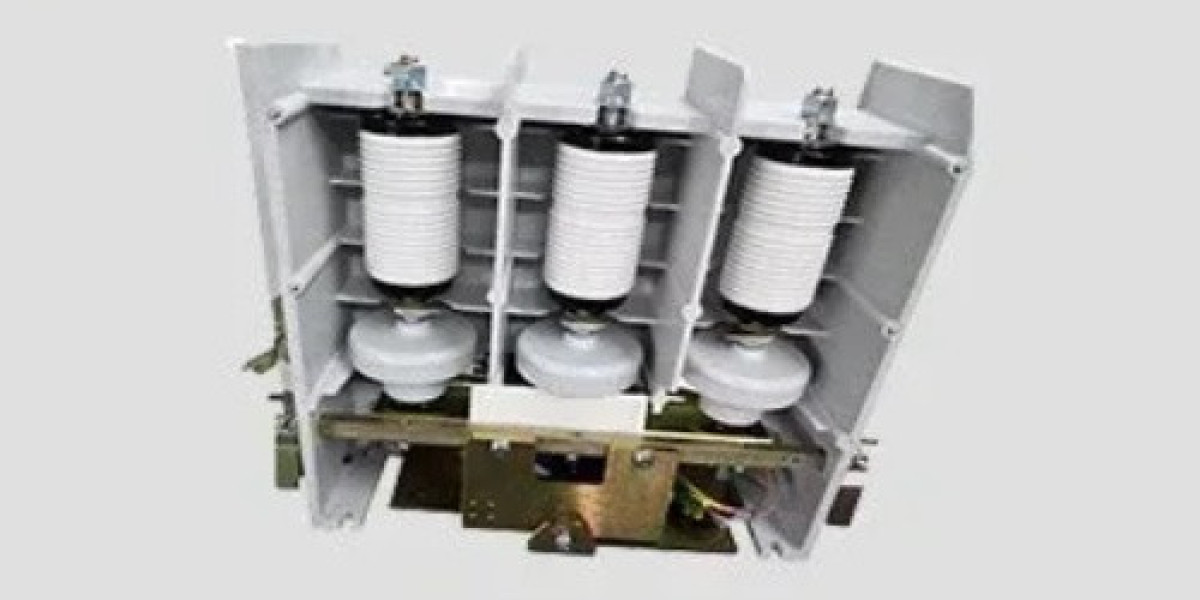In power distribution systems, the reliable and efficient control of electrical circuits is of utmost importance. AC vacuum contactors play a vital role in power distribution by providing a safe and effective means of switching and controlling electrical currents. In this blog post, we will explore the advantages and applications of AC vacuum contactors in power distribution. Haibang, a leading provider of electrical products, is committed to delivering high-quality AC vacuum contactors to meet the needs of various industries.
1.Introduction to AC Vacuum Contactors
AC vacuum contactors are electromechanical devices used to control and switch electrical currents in power distribution systems. They are designed to handle high-voltage and high-current applications, making them suitable for a wide range of industrial and commercial settings. AC vacuum contactors utilize vacuum interrupters instead of traditional air or oil-based contactors, offering several advantages in terms of performance and safety.

2.Advantages of AC Vacuum Contactors
AC vacuum contactors offer several advantages over other types of contactors:
a. High Electrical Withstand Capability: AC vacuum contactors are designed to handle high-voltage applications, typically up to 12 kV or higher. They can withstand high electrical loads and provide reliable switching and control of electrical circuits.
b. Long Electrical Life: Vacuum interrupters used in AC vacuum contactors have a long electrical life. They are capable of thousands of switching operations without significant degradation in performance.
c. Faster Switching Speed: Vacuum interrupters have a faster switching speed compared to air or oil-based contactors. This allows for quick and efficient control of electrical circuits, reducing downtime and improving overall system performance.
d. Low Maintenance: AC vacuum contactors require minimal maintenance due to the absence of moving parts and the self-cleaning nature of vacuum interrupters. This reduces operational costs and ensures reliable operation over an extended period.
e. Compact Design: AC vacuum contactors are typically compact in size, making them ideal for installations where space is limited. Their compact design allows for easy integration into existing power distribution systems.
f. Noiseless Operation: Vacuum interrupters provide noiseless operation, eliminating the need for additional noise reduction measures. This is particularly important in settings where noise pollution is a concern.
g. Environmentally Friendly: AC vacuum contactors are environmentally friendly due to the absence of oil or other hazardous substances. They do not contribute to pollution or pose a risk to the environment.
3.Applications of AC Vacuum Contactors in Power Distribution
AC vacuum contactors find widespread use in various applications within power distribution systems:
a. Motor Control: AC vacuum contactors are commonly used for motor control in industrial settings. They provide reliable switching and control of motors, allowing for efficient operation and protection against overloads and short circuits.
b. Power Capacitor Switching: AC vacuum contactors are used for switching power capacitors in power factor correction systems. They ensure smooth and efficient switching of capacitors, improving power quality and reducing energy consumption.
c. Power Distribution Networks: AC vacuum contactors are employed in power distribution networks for controlling and switching power supply to different areas or loads. They help to ensure safe and reliable distribution of electrical power.
d. Generator Control: AC vacuum contactors are utilized in generator control systems to switch and control the power output of generators. They provide a reliable means of connecting or disconnecting generators from the electrical grid.
e. Transformer Control: AC vacuum contactors play a crucial role in controlling and switching power supply to transformers. They protect transformers from overloads and short circuits, ensuring efficient and safe operation.

4.Haibang: Your Trusted Provider of AC Vacuum Contactors
As a leading provider of electrical products, Haibang offers a wide range of high-quality AC vacuum contactors designed to meet the needs of different industries. Haibang's AC vacuum contactors are manufactured using advanced technology and undergo strict quality control measures to ensure optimal performance and reliability.
Haibang's AC vacuum contactors are widely recognized for their superior electrical performance, long life, and compact design. With a commitment to customer satisfaction, Haibang provides comprehensive technical support and excellent after-sales service to ensure the successful integration of AC vacuum contactors into power distribution systems.
Conclusion
AC vacuum contactors play a crucial role in power distribution systems, providing efficient and reliable control of electrical circuits. With advantages such as high electrical withstand capability, long electrical life, faster switching speed, low maintenance, compact design, noiseless operation, and environmental friendliness, AC vacuum contactors are the preferred choice for various applications in power distribution.
Haibang, as a trusted provider of electrical products, offers high-quality AC vacuum contactors designed to meet the needs of different industries. With Haibang's AC vacuum contactors, power distribution systems can achieve optimal performance, enhanced safety, and improved efficiency. Contact Haibang today to explore their range of AC vacuum contactors and experience the benefits they bring to power distribution applications.







